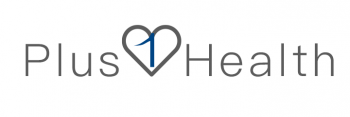Stress, staying up late, insomnia, irregular diet… Many young people are already in a sub-healthy state. In addition to the annual physical examination, the doctor in the hospital reminds you of the risk of disease, and daily monitoring of heart rate, respiratory rate, blood pressure, blood oxygen, and sleep quality is also required.
1. Heart rate should be kept at 60 to 100 beats per minute at rest
Heart rate is the number of heartbeats per minute. The heart rate of a normal person in a resting state is 60 to 100 beats per minute, and the heart rate is too fast or too slow.
Generally speaking, in patients with bradycardia, the heartbeat is less than 60 beats per minute or even lower, which can easily lead to insufficient blood supply to the organs of the whole body,may be life-threatening. And the faster the heartbeat, the more dangerous the blood vessels. Because every beat of the heart will bring a pulse of blood flow and passive elastic relaxation and contraction of blood vessels, it is a shock to the arteries of the whole body. Under the action of various forces, the more the number of heartbeats, the greater the damage to the arteries, and the more prone to atherosclerosis and vascular endothelial damage.
2. Breathing rate, the breathing rate should generally be 16 to 20 beats per minute
Respiration rate expresses the milligrams (or microopens) of oxygen consumed or carbon dioxide released per gram of living tissue (fresh weight, dry weight, nitrogen content, etc.) per hour. The size of the respiration rate can reflect the strength of the metabolic activity of an organism. The respiratory rate is a very important vital sign of the human body. Generally, the respiratory rate of each of us should be 16 to 20 per minute. If it is abnormal, it is very likely that there are some problems in the body or even illness.
3. Blood oxygen, the normal blood oxygen saturation of the human body is above 95%
Blood oxygen refers to the oxygen in the blood. The normal blood oxygen saturation of the human body is above 95%. The higher the oxygen content in the blood, the better the metabolism of people, but too high will lead to the aging of cells in the body, and too low will cause insufficient oxygen supply to the body.
4. Blood pressure, the rhythm of blood pressure in normal healthy people is “two peaks and one valley”
Under normal circumstances, blood pressure does not exceed 140/90mmHg during the day and 120/80mmHg at night. The changes of blood pressure during the day and night are regular. The rhythm of blood pressure in normal healthy people is “two peaks and one valley”, that is, blood pressure fluctuates at a high level during the day, and gradually decreases from 8 pm to 2~3 pm at night. At the lowest point, blood pressure rises sharply in the early morning, and reaches the highest peak at 6-8 am, then the blood pressure continues to fluctuate at a high level, and the second peak occurs at 4-6 pm, and then gradually decreases. The greater the blood pressure fluctuation, the more serious the damage to the heart, brain, kidney and other organs.
5. Sleep quality, poor sleep can lead to neurasthenia, gastrointestinal diseases, endocrine disorders, etc.
Insufficient sleep and poor sleep quality will affect mood, irritability, depression and other negative emotions, and even induce neurasthenia; poor sleep can easily lead to gastrointestinal diseases, and gastrointestinal diseases can also make people sleep restless, stomach at night. If the intestinal tract is not rested, problems such as dysfunction and constipation will come; poor sleep can also lead to a series of negative physiological changes, such as sympathetic nervous excitation, activation of the stress system, and “increase of sebitol and adrenaline in the body”. Increased secretion of glucose hormones can also cause insulin resistance and increase blood sugar.
Plus1Health has the PLUS101 module. The PLUS101 module is a small module that can measure “ECG, blood oxygen, blood pressure, and heart rate” at the same time. It has built-in professional algorithms and open interface documents, which can quickly help customers develop products and applications that support “ECG, blood oxygen, blood pressure, heart rate” detect.
PLUS101 ECG, blood oxygen, blood pressure, heart rate modules are developed and designed by a professional medical device R&D team, and after rigorous testing, they can reach medical-grade technical indicators and pass the medical device registration license. It is widely used in smart ECG watches, ECG bracelets, blood oxygen watches, blood oxygen bracelets, smart health detection and other product solutions.
